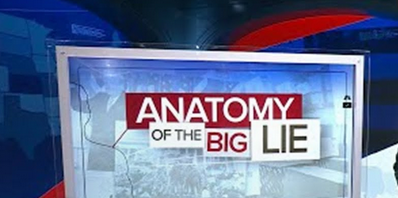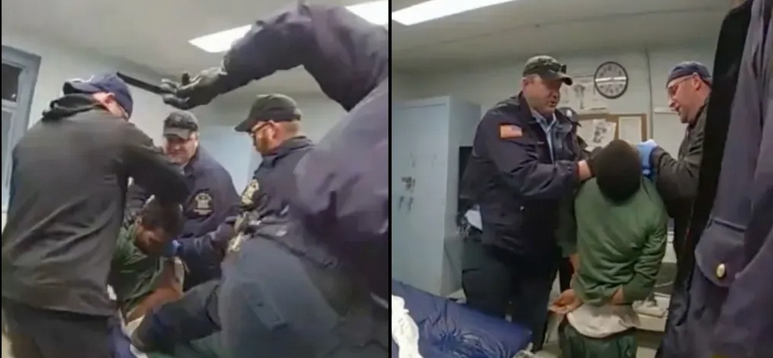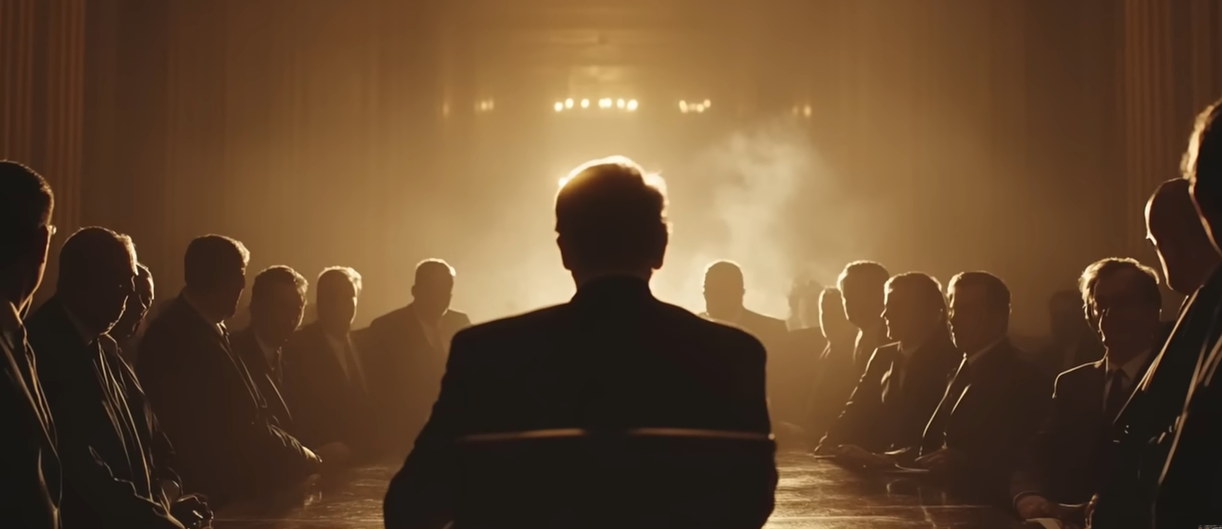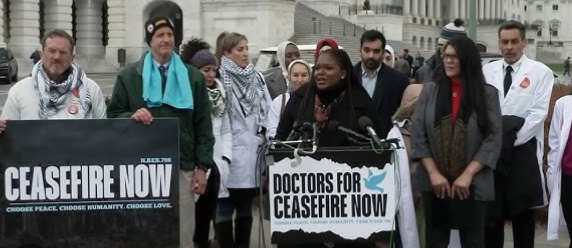Photos: YouTube
Gallup (7/18/22) released the results of two poll questions last month that purported to measure the public’s confidence in the “news media.” The results showed only 11% and 16% of Americans with “a great deal” or “quite a lot” of confidence in television news and newspapers, respectively.
These results were enough to inspire columnist Marc Thiessen of the Washington Post (7/26/22) to produce another one of his disingenuous rants against the “mainstream media” (Washington Post, 1/6/22). “Why do people believe the ‘Big Lie’?” he asks. Answer: “Because Americans don’t trust the media.” He argues that because the media have lost public confidence, they are the reason that roughly one-third of Americans overall, including two-thirds of Republicans, believe the Big Lie—that the 2020 presidential election was stolen (Atlantic, 4/18/22).
As he writes:
Millions watched this biased coverage [of Trump’s presidency], and the animus toward Trump and his supporters, and began to tune out mainstream news coverage. So, in January 2021—the very moment our country needed to separate fact from fiction—there was no neutral arbiter of truth that a majority of Americans trusted.
Blaming the mainstream media for people believing the Big Lie is almost as preposterous as the Big Lie itself.
This does not mean that the mainstream media do not deserve careful scrutiny and criticism for their corporate bias and censorship, which FAIR has been providing since 1986. But that is not what Thiessen has described.
Trust in some ‘media’
It is true that most Americans say they distrust the “media.” A recent Pew Research study (8/31/20), published in August 2020, confirmed that Americans are highly skeptical of the news media as an industry, that views of the “media” are sharply partisan, and that Americans understand little about the process of news production.
But Pew has also examined public attitudes toward specific news sources, and in that context finds that most people trust some media news, if not all. Pew researchers Lee Rainie and Katerina Eva Matsa (Pew Research, 1/5/22) recorded a video in which they discuss these results:
We asked, “Do you trust the news media?” And a lot of people answered “no” to that question. But then, to unpack that idea…Americans are equally comfortable sort of saying, “Yes, I really like, and I really trust, some sources but not others.” And so, in a way, their trust has become disaggregated and divided.
People have lots of news sources that they trust, but they don’t think the institution of the news media and the industry of news organizations as a whole are trustworthy.
Evidence that most people do trust “lots of [specific] news sources,” if not “the media” more generally, is provided by a 2020 Pew poll that “unpacked” the public’s views of the news media (1/24/20). It asked respondents to indicate which of 30 news outlets they trusted, and which of those they distrusted.
According to the findings, clear majorities of Democrats trust CNN, NBC, ABC, CBS and PBS, and a large majority of Republicans trust Fox. Viewership, like trust, is concentrated on Fox by Republicans, while viewership among Democrats is spread among several television networks.
These findings reveal that while there is no one news outlet that garners the trust of a majority of Americans, the vast majority of Americans do have at least one news source they trust.
Too much trust in ‘media’?
Back to Thiessen’s question: Why do people believe in the Big Lie? Is it really because they don’t trust the media?
Actually, the more logical conclusion, based on Pew’s findings, is that people believe that the election was stolen because they do trust the media—that is, the specific news sources they use.
When Thiessen refers to “people” believing the Big Lie, he glosses over poll reports that show most of those “people” are Republicans (PRRI, 5/12/21), and most of the Republicans trust and pay attention to Fox, which is a doggedly determined purveyor and arguably a co-creator of the election hoax (Los Angeles Times, 1/19/21) . Former Fox political editor Chris Stirewalt accuses Fox of being the “biggest promoter of the Big Lie,” saying that “the network gave voice, repeatedly, to people putting forward the preposterous notion that the election had been stolen” (ABC, 7/30/21)
The biggest consumers of Fox—Republicans—overwhelmingly believe what the network is flacking. A Poll by PRRI showed that 66% of Republicans agree with the statement, “The 2020 election was stolen from Donald Trump,” compared with 27% of independents and 4% of Democrats.
And among Republicans who watch Fox, 86% believe the election was stolen, compared with roughly half that number (44%) among Republicans who watch more traditional news. These results suggest that Republicans who watch Fox mostly trust what they hear on that network—that Trump won the election.
Beyond media
Still, as the chart shows, even among Republicans who use mainstream news sources, close to half believe the election hoax. That could be due, in part, to the fact that PRRI includes local TV news viewers among “mainstream” viewers. And the largest owner of local TV stations is the Sinclair Broadcast Group, which is an unabashed supporter of Donald Trump (Vox, 4/3/18), and also a purveyor of the Big Lie (Media Matters, 1/28/21)
But there must be something more than simply right-wing media as the purveyors of lies. And that “something more” is obvious: Donald Trump.
He dominates the Republican Party, demanding that its current and would-be leaders profess fealty to his bogus claim of a stolen election if they want his support. Republicans in the House were so terrified of his wrath, they removed Rep. Liz Cheney from her leadership position because she refused to accept the lie that the election was stolen from Trump (NPR, 5/12/21)
FiveThirtyEight (9/8/21) reported that last year, state Republican leaders demagoguing the notion of fraudulent votes passed a record number of voting restrictions, “the policy byproduct of former President Donald Trump’s unfounded claims that the 2020 election was fraudulent.”
And this year, with only half the Republican primary season over, FiveThirtyEight (7/18/22) reports “definitively that at least 120 election deniers have won their party’s nomination and will be on the ballot in the fall.”
All these developments are legitimate news stories, which are covered by mainstream news media as well as the right-wing media. Many rank-and-file Republicans who see all these party leaders and candidates espousing the myth of the stolen election are no doubt persuaded that there is some truth to the claims.
Given Trump’s role in fomenting the election hoax, widespread acceptance of the hoax among Republican leaders, and the right-wing media’s role in helping to propagate it, blaming only the mainstream media for why most Republicans believe the Big Lie is, as I noted at the beginning of this article, preposterous—in fact, almost as preposterous as the Big Lie itself.
Of course, the mainstream media are not blameless. As reported here (FAIR.org, 1/18/21), they have long engaged in “bothsiderism,” an addiction to a false balance in reporting even on the January 6 insurrection. But that is not Thiessen’s argument. He wants us to believe that the mainstream media alone, because they have lost trust mostly among Republicans, is responsible for belief in the stolen election.
Even Thiessen himself appears not to believe his own words. What is the tell that reveals his duplicity? Never once in his two pieces for the Washington Post (7/26/22, 1/6/22), in which he makes his argument against “the media,” does he even acknowledge the lies about the 2020 presidential election spewing from Fox network and other right wing media. Nor does he acknowledge that Fox lists him as a “Fox News contributor” (6/28/18). Deliberately omitting such salient facts betray what he is really doing: acting as a shill for a corrupt network.
By FAIR







